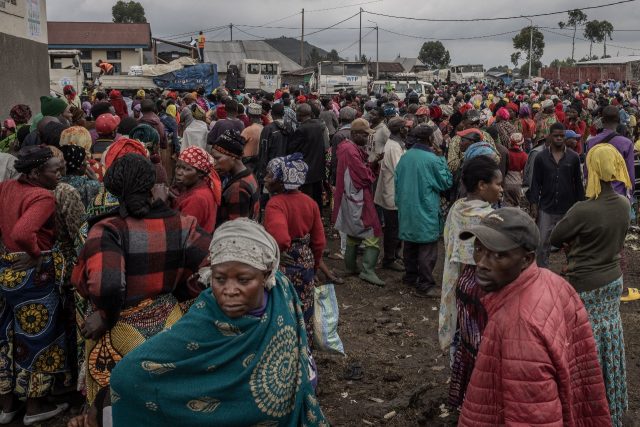The Democratic Republic of Congo on Monday accused Rwanda of an “invasion” after rebels it says receive support from Kigali overran a major trading post on the Ugandan border.
Fighters from the M23 rebel group seized the town of Bunagana in eastern North Kivu province as some government forces retreated into Uganda, local sources said.
But the Congolese army released a statement on Monday evening accusing the Rwandan army of taking over the border town.
General Sylvain Ekenge, spokesman for the province’s military government, said Kigali decided to “directly intervene” after realising the rebels it backs were suffering “enormous setbacks”.
Rwandan troops “decided to violate the untouchable nature of our border and the integrity of our territory” by occupying Bunagana, which he called “an invasion, no more, no less”.
The comments escalated Congolese rhetoric against Rwanda, with the government already accusing its neighbour of backing rebels in the east of the country.
Bunagana “is under enemy control”, a Congolese officer had earlier told AFP by phone from provincial capital Goma.
“The army has just given way and is heading into Uganda,” said Damien Sebusanane, head of a civil society association, who was on Uganda’s border with the Democratic Republic of Congo (DRC).
“An army truck has just gone past, four jeeps and other vehicles which are full of soldiers,” he said, estimating the number of DRC troops retreating into Uganda at around 100.
A humanitarian source on the ground said heavy clashes had broken out again on Sunday morning and the only way out for the embattled DRC troops was to cross into Uganda.
“One hundred and thirty-seven Congolese soldiers and 37 police have surrendered” to Ugandan troops, security forces officer Hajj Sadiq Sekandi said from Kampala.
“They were fleeing the fighting and seeking protection,” he said, adding that he was at the border leading a crisis meeting.
UN refugee concerns
Thousands of people have fled into Uganda and the DRC territory of Rutshuru since a second bout of violence flared in March.
The Ugandan officer said: “At the moment there are more than 30,000 Congolese on the Ugandan side of the border. They are frightened to return home.”
The UN’s refugee agency said on Monday that 368 more people had fled across the border into Uganda from Bunagana.
The humanitarian situation was “more and more concerning”, said Herve Nsabimana, coordinator of a human rights NGO.
The M23, a primarily Congolese Tutsi militia, is one of more than 120 armed groups active in eastern DRC.
It briefly captured Goma in 2012 but a joint offensive by UN troops and the Congolese army quelled the rebellion.
The group resumed fighting in November last year after accusing the Congolese government of failing to respect a 2009 agreement under which the army was to incorporate its fighters.
The DRC government on Sunday reiterated that Rwanda was backing the rebels, an assertion Kigali has repeatedly denied.
In their assault on Bunagana, the M23 were “supported by soldiers and artillery from the Rwandan army”, the DRC army said in a statement, adding that two soldiers and several enemy combatants were killed.
Ekenge had said Rwanda was seeking to “asphyxiate” Goma and put pressure on the government in Kinshasa.
Ceasefire call
The M23 put out a statement confirming Bunagana was under its control.
It was not a premeditated act, said spokesman Willy Ngoma, but came in response to the army offensive.
The UN and the African Union called for a ceasefire on all sides, but Kigali accused the UN mission in the Democratic Republic of Congo, known by its French acronym MONUSCO, of “taking sides” and supporting Kinshasa.
“When the DRC bombs Rwandan territory unprovoked, this is a serious matter that has consequences, and it has to stop once and for all,” Rwandan government spokeswoman Yolande Makolo posted on Twitter.
“By taking sides in this conflict, MONUSCO has contributed significantly to the intransigence of the DRC Government in cross-border shelling of Rwandan territory,” she added.
Relations between Kinshasa and Kigali have been strained since the mass arrival in DRC of Rwandan Hutus accused of slaughtering Tutsis during the 1994 Rwanda genocide.

COMMENTS
Please let us know if you're having issues with commenting.